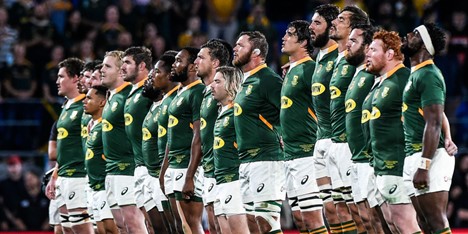
2022-7-20 08:0:0 Author: www.trustwave.com(查看原文) 阅读量:18 收藏
Leadership and teamwork personally and professionally have long been a passion of mine, while we all interpret and digest the concepts differently, I usually find the strongest parallels in team sports.
Over the last couple of months there has been no shortage of sport available to watch – tennis, cricket tests, state of origin, rugby (mostly look forward to the seeing the Springboks play) and I guess AFL requires an obligatory mention. Given some of the economic headwinds we face in our region this year, I thought I would share some of my thoughts.
What can rugby collectively teach us about building and nurturing a team?
(My apologies to those who believe the primary sport played on a long, rectangular field involves a brown oval-shaped ball and helmeted men or one that uses a globe shaped ball with hardly any scoring. But as we know, all right-thinking people know those are false ideas.)
(Courtesy SA Rugby)
The worlds of rugby and business might, at face value, appear to have no similarities. After all, what could a team of cybersecurity professionals, possibly have in common with people chasing an egg-shaped ball? The common denominator for me is that without a great team, winning becomes harder.
Know What You Need for the Right Position/Role
When thinking of a rugby team, images of 15 rather large and for the most part well built, well-conditioned individuals may come to mind. Those who appreciate the intricacies of the game understand that different positions on the rugby field actually require a unique skill set, mental approach and physical attributes. A fullback might be able to play fly-half, but a lock will never be a hooker or a prop. In other words, one size does not fit all. The same is true for our business. We must ensure that we have our people in the right roles doing the right jobs in order to drive the right outcomes.
Being a Team Player
Rugby is full of examples of teams achieving greatness by putting aside personal glory to focus on something much bigger. What leads a company to have greater productivity, efficiency and ultimately results? Is it the effort of a single individual or the combined strength of a group?
In rugby, the team comes first. The dynamics of the game makes them fight to win – and defend – every centimetre of the field, something essential in a discipline where individualism is rarely critical in delivering sustained success. This same mindset, in my experience, is needed in a successful business, the hunger to compete for every advantage against tough competition.
(Trustwave Jobs Available in the PAC Region.)
Leadership and Orchestration
All teams need great leaders - be it the captain on the pitch, the manager of a functional team, or the CEO of a multinational corporation. A good business leader needs to be like a good scrumhalf; the player who orchestrates the both the backs and forward pack, and whose immediate decisions dominate play tactics. They need to understand the strengths of all the players on the field and bind diverse functions together into one cohesive, offensive, and defensive unit.
Focus on What We Can Control
One of the most interesting features of rugby is how the shape of the ball leads to it bouncing entirely unpredictably. Often the same kicking motion can lead either to surge up the field or the ball skewing out of play.
The point is that the outcome cannot always be predicted. But it can be responded to. We could not have planned for interest rate increases and rises in inflation, however we can control how we respond. The same is true of building teams. People are not machines and we can, at times, be unpredictable, so good leaders can do is respond appropriately to any given situation by maintaining values of professionalism and compassion.
Diversity Can Give You the Edge
Any leader worth their salt knows how important diversity is in building a dynamic team. The Barbarians rugby team, who bring together the best rugby players from around the world are a great example of diverse skills in action.
The Barbarians are an invitational rugby team selected from talented players throughout the world, much like we bring some of the most talented people in the market to our team.
They play a handful of matches each year against top clubs and countries. By taking the best players who, only weeks before, were competing against each other, the most effective coaches — like the best business leaders — can build teams who combine the strengths of some of the most talented players in the world and are able to galvanise them to act as a team exceptionally quickly, and despite their differences in national allegiance.
In the end, every endeavor requires leaders to inspire those in their charge. Don’t shortchange yourself by limiting where you find this inspiration to the usual places, school, business seminars and the like. A person’s outside interests in sport, art or the theater likely contain a treasure trove of information that can be tapped.
如有侵权请联系:admin#unsafe.sh

